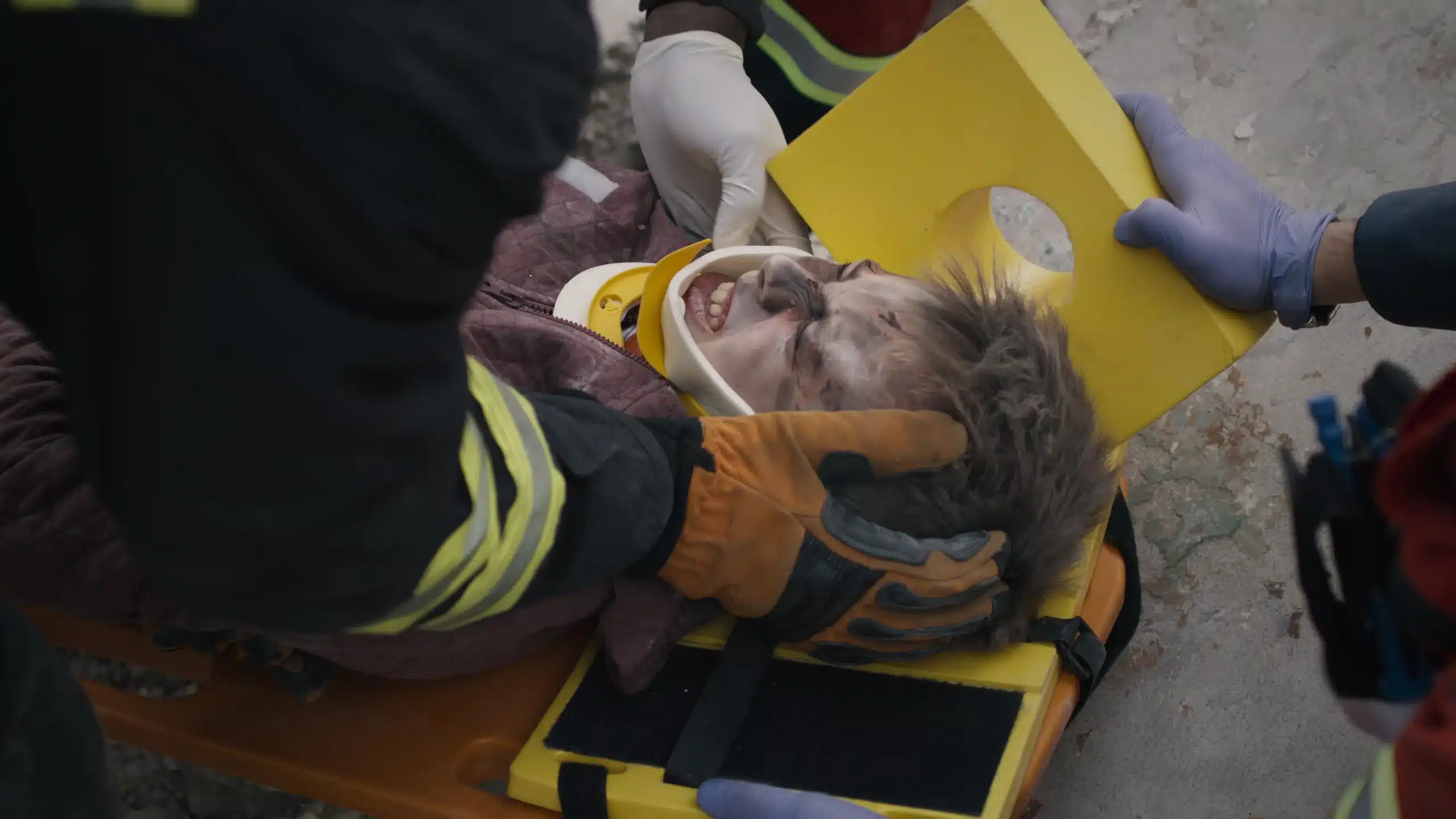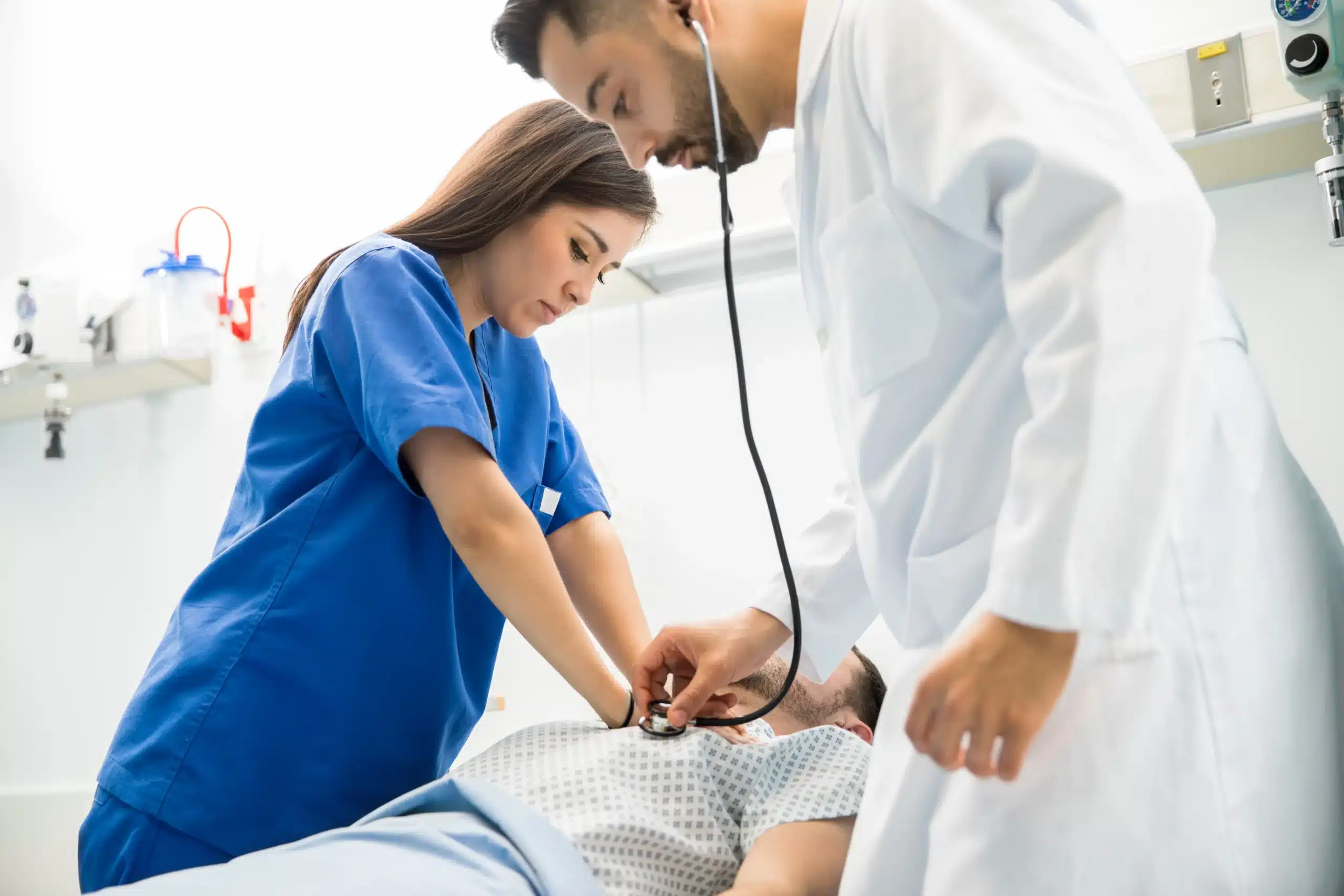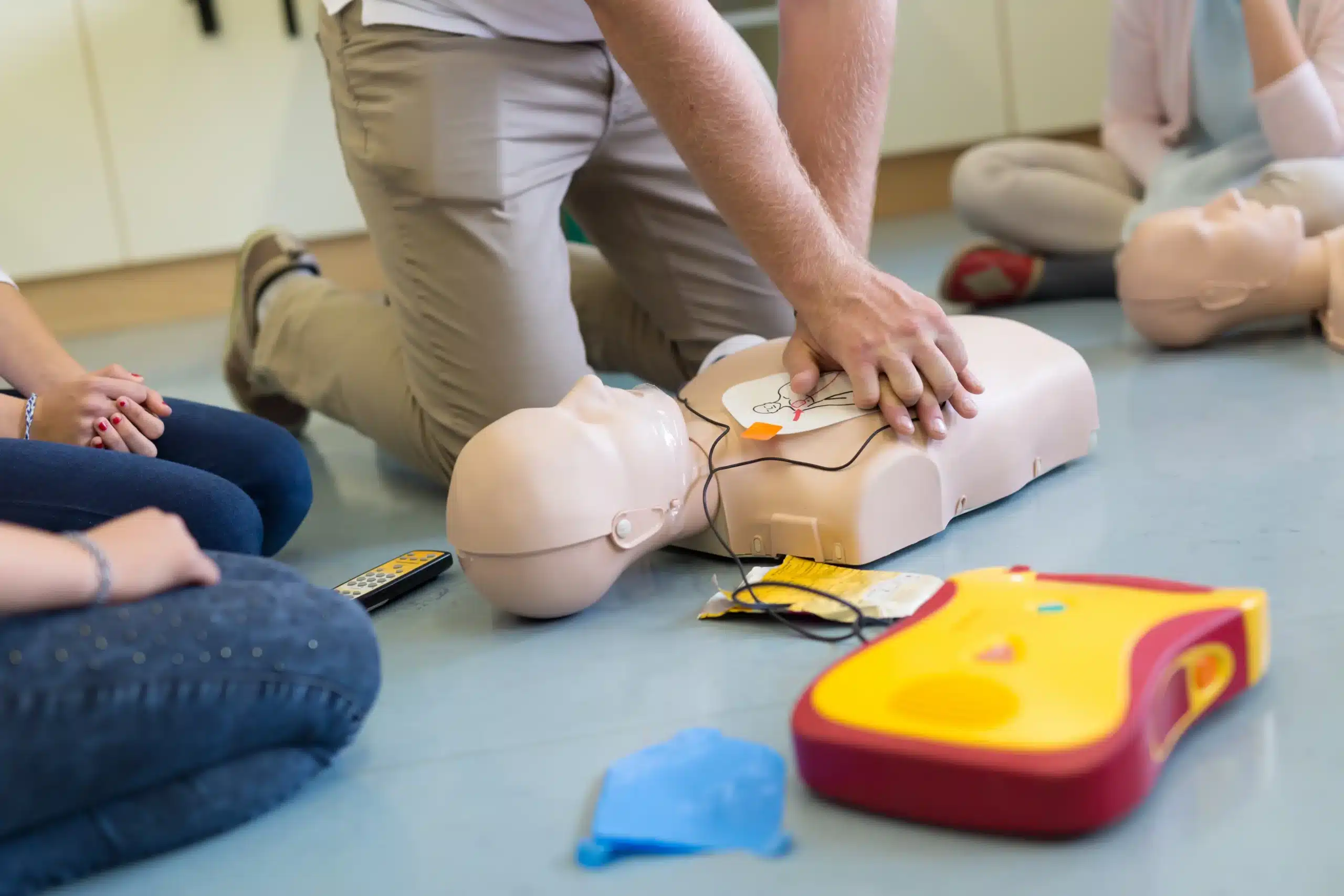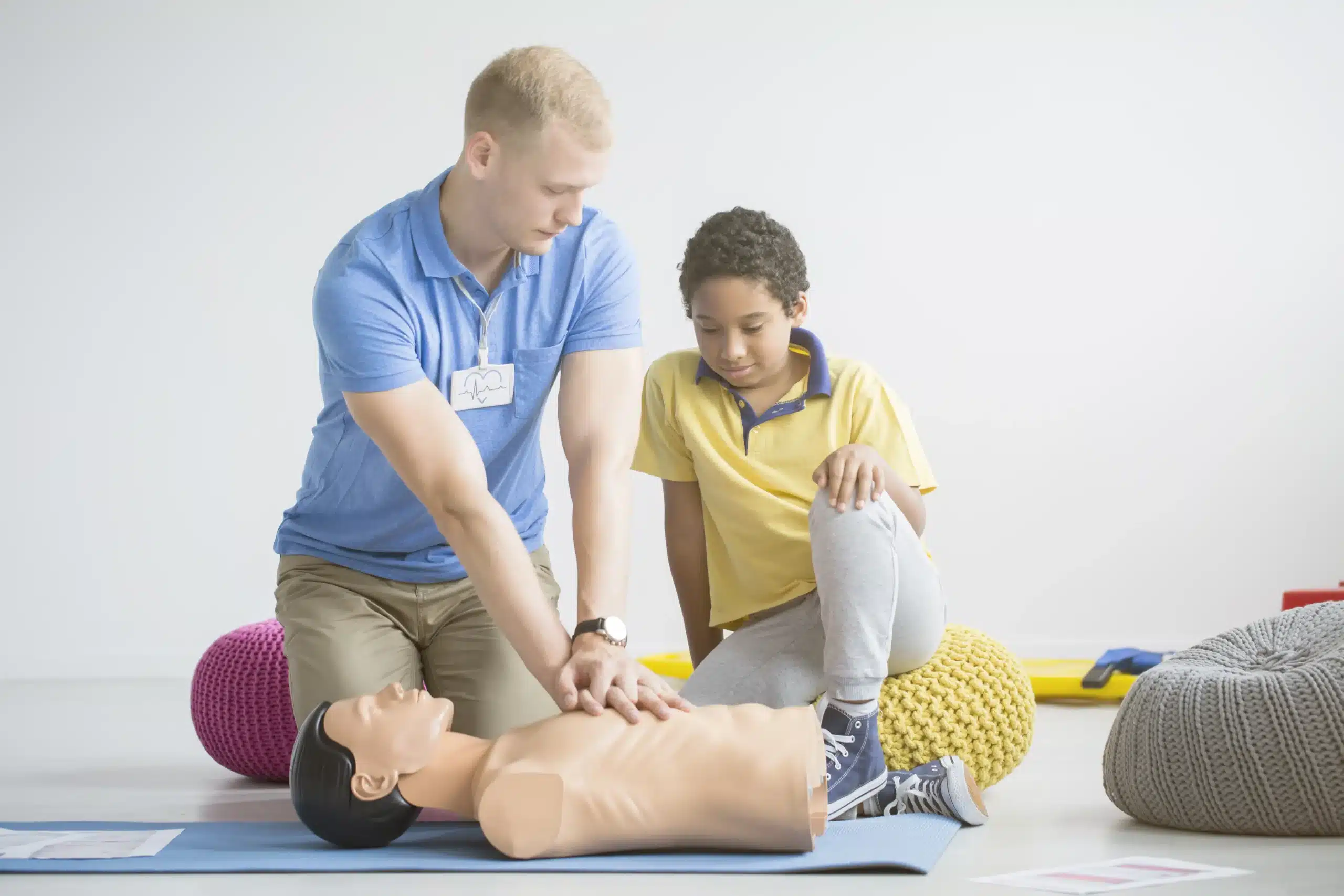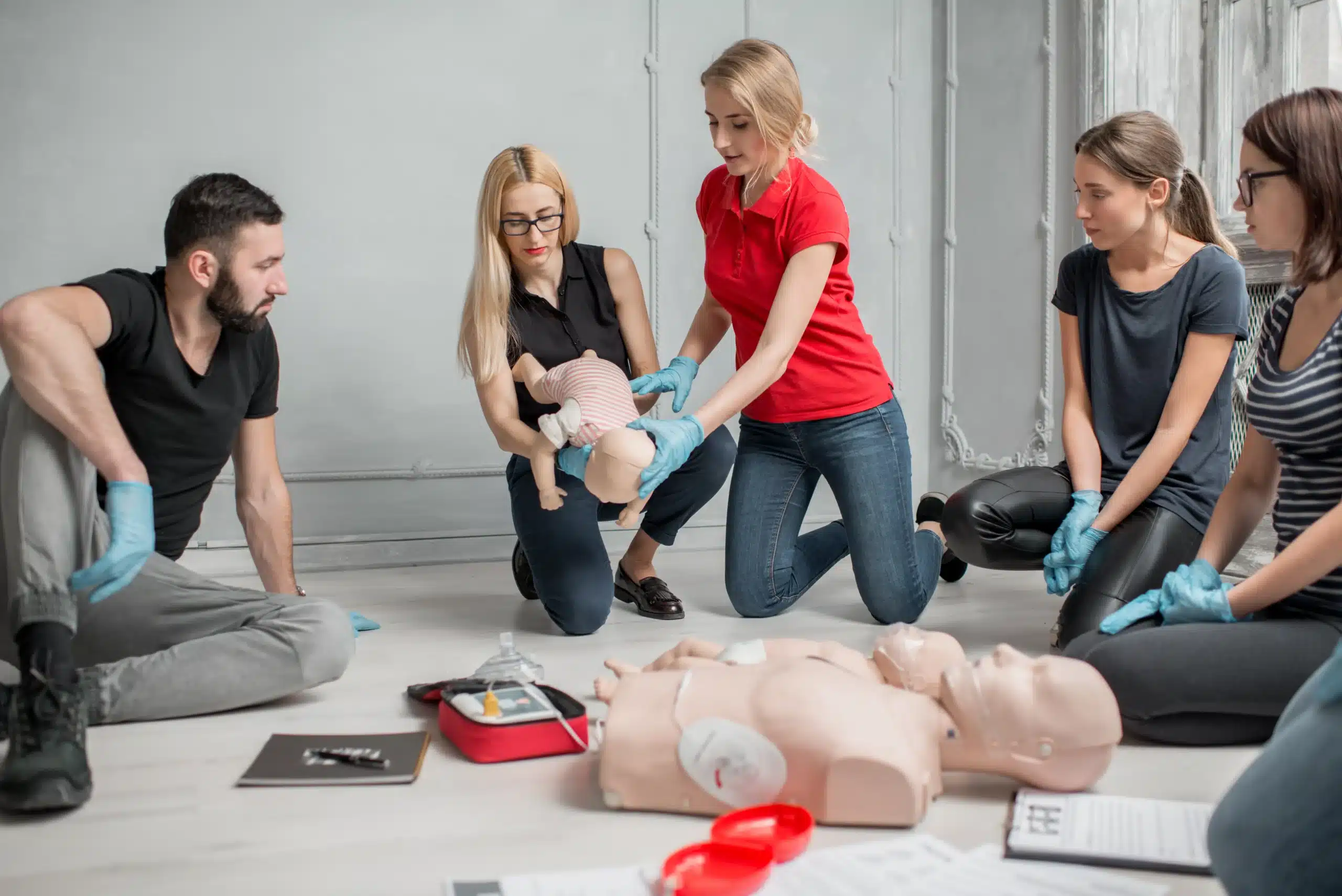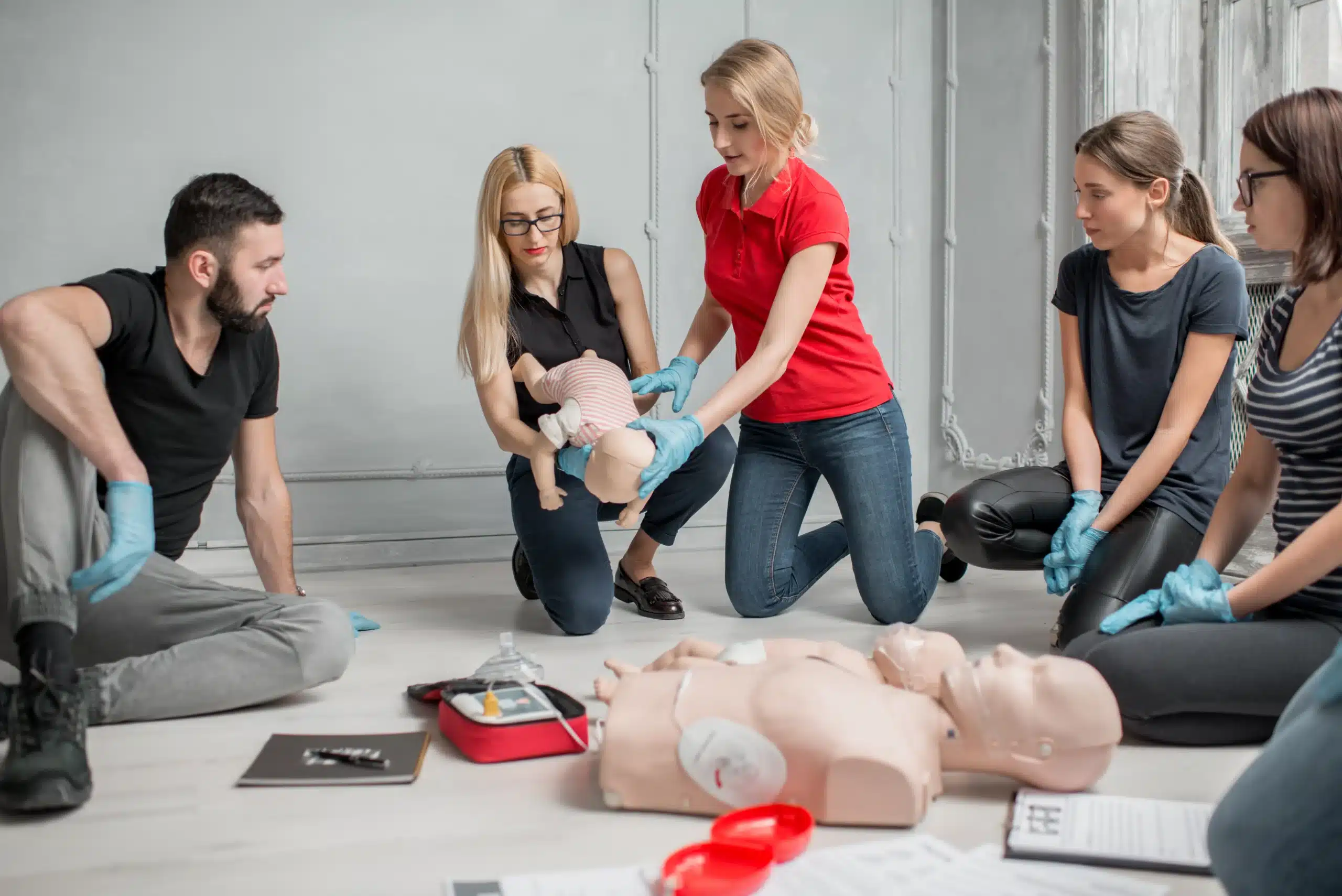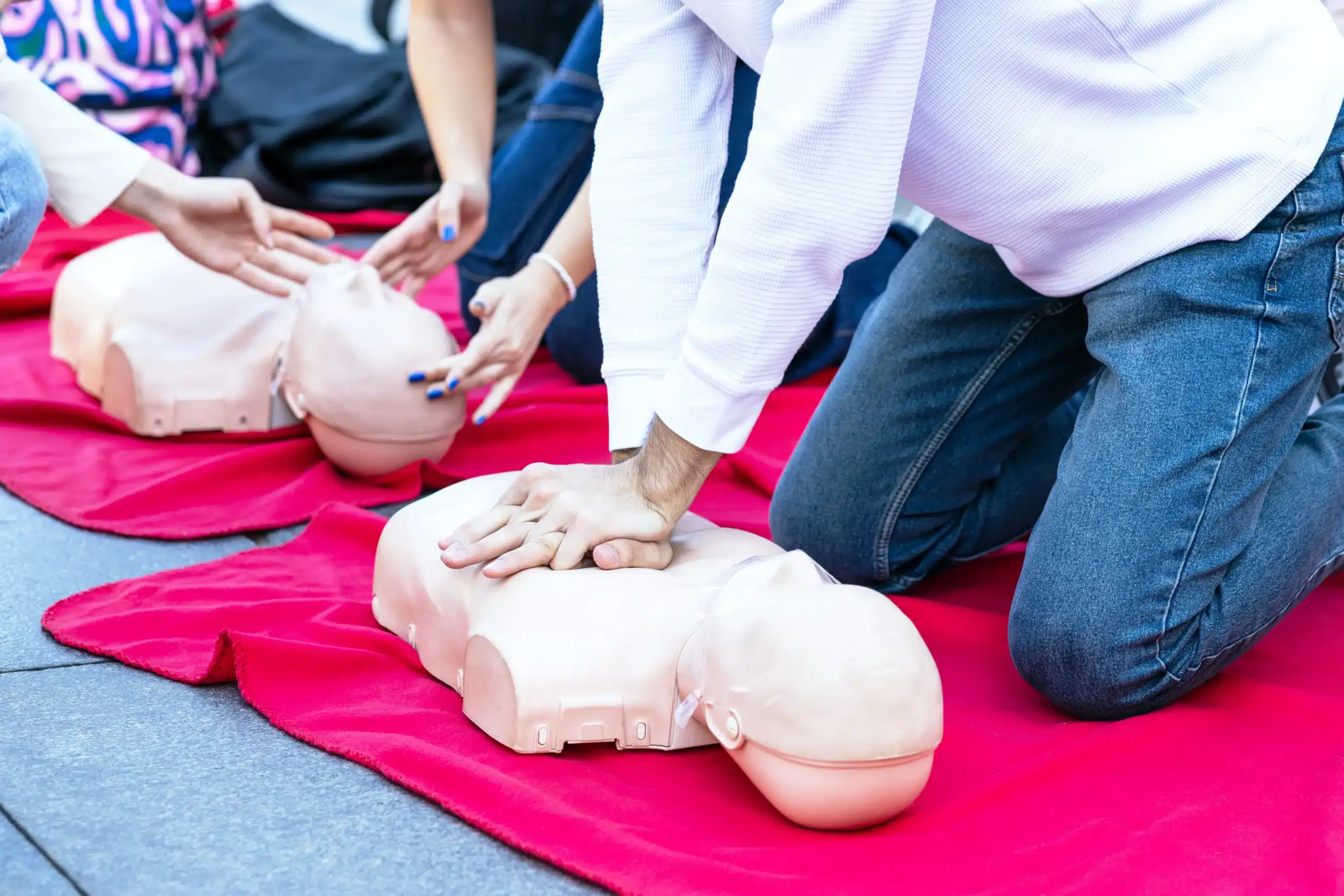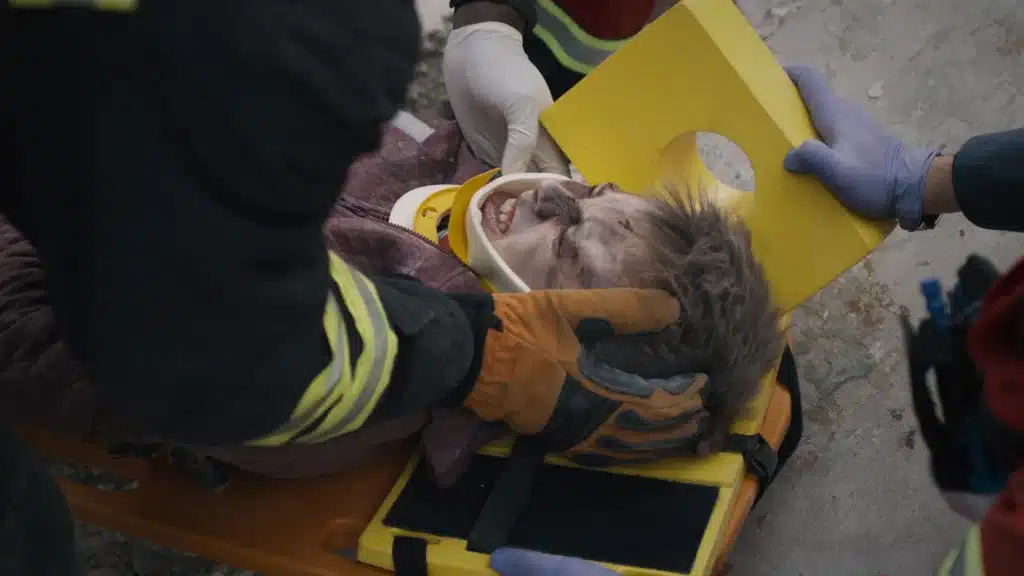CPR certification in Berkeley is more than just a qualification—it’s a powerful skill that can save lives. Whether you’re a healthcare professional, work with children, or simply want to be prepared for anything, this guide will help you find the right CPR course in Berkeley. We’ll cover everything from basic CPR and AED training to advanced certifications like ACLS and PALS. We’ll also discuss the benefits of CPR certification, the costs involved, and how to choose the right training provider. Let’s get started!
Key Takeaways
- Find the right CPR class for you: Consider your individual needs and career goals when choosing between CPR/AED, BLS, pediatric, or specialized training.
- CPR certification is an asset: It enhances your resume, prepares you for emergencies, and allows you to contribute to a safer community.
- Stay current with your certification: Most CPR certifications are valid for two years. Plan to renew your training and refresh your skills to maintain your qualifications.
What is CPR Certification in Berkeley?
CPR certification in Berkeley gives you the skills to respond to cardiac arrest and other emergencies. It shows you’ve completed training and can perform CPR and often, use an automated external defibrillator (AED). These courses teach essential techniques like recognizing cardiac arrest, performing chest compressions, and giving rescue breaths. With CPR certification, you’re prepared to act in a crisis, whether at home, work, or in the community. Many Berkeley organizations offer these courses for everyone from the general public to healthcare professionals seeking advanced certifications like ACLS. Most CPR certifications in Berkeley come through the American Heart Association (AHA) and are valid for two years. Various learning formats, including in-person classes, online components, and blended learning, make training accessible.
CPR Certification Course Types
Choosing the right CPR certification course depends on your individual needs and career goals. Here’s a breakdown of common CPR certification types offered in Berkeley:
CPR/AED for Non-Medical Professionals
This course is ideal for anyone wanting to learn CPR and how to use an automated external defibrillator (AED). It covers basic life support skills for adults, children, and infants. This course is suitable for teachers, coaches, parents, and anyone interested in being prepared for emergencies. Find a CPR course in Berkeley that fits your needs.
BLS for Healthcare Providers
The BLS course equips healthcare professionals, like doctors, nurses, and EMTs, with the skills to respond to life-threatening emergencies. It covers advanced CPR techniques, team dynamics, and using specialized equipment. BLS certification often involves online coursework combined with in-person skills testing.
Pediatric CPR and First Aid
Designed for childcare providers, parents, and those working with children, this course focuses on CPR and first aid techniques specific to infants and children. It addresses common childhood injuries and illnesses, giving participants the confidence to respond effectively in pediatric emergencies. Consider Safety Training Seminars for pediatric CPR and first aid training.
Specialized Training
Beyond core certifications, specialized training courses cater to specific professional requirements. ACLS (Advanced Cardiovascular Life Support) and PALS (Pediatric Advanced Life Support) certifications are examples of advanced courses for healthcare providers. These courses address complex medical emergencies and require a higher level of medical knowledge. You can find ACLS and PALS courses in Berkeley through various providers.
Top Berkeley CPR Certification Providers
Finding the right CPR certification course can feel overwhelming, so we’ve compiled a list of top providers in Berkeley to simplify your search. Each organization offers different learning formats, specializations, and price points, so you can find the perfect fit.
Safety Training Seminars
Safety Training Seminars offers American Heart Association (AHA) certified courses in CPR, BLS, ACLS, and PALS in Berkeley. They provide a range of courses suitable for healthcare providers and the general public. If you’re searching for CPR classes in Berkeley, check their website for upcoming courses.
American Red Cross
The American Red Cross is a well-known provider of CPR/AED training in Berkeley. Led by expert instructors, their courses cover essential lifesaving skills. The Red Cross emphasizes the importance of refreshing your skills periodically.
American Heart Association
While not a direct training provider, the American Heart Association sets the standards for CPR education. Many organizations, including Berkeley CPR Classes, offer AHA-certified courses, ensuring high-quality instruction aligned with the latest guidelines. Look for providers offering AHA BLS, ACLS, and PALS certifications.
Berkeley CPR Classes
Berkeley CPR Classes focuses on providing accessible and affordable CPR training. They offer various course formats and group discounts, making it easier for individuals and groups to get certified. Check their website for more information on pricing and course schedules.
CPR Education
CPR Education offers CPR certification courses in Berkeley with an emphasis on practical skills and building confidence. Their training aims to equip participants with the knowledge and skills to respond effectively in emergencies.
CPR Course Costs & Accessibility
Finding a CPR class that fits your budget and schedule is easier than you think. Several factors influence CPR course costs, including the type of certification, the course format, and the training provider. Let’s break down the typical costs and explore ways to make CPR training more accessible.
Average Course Pricing
CPR course fees in Berkeley, California, are generally comparable to other major cities. As a benchmark, a Basic Life Support (BLS) course—a crucial certification for healthcare providers—costs around $120, covering online coursework, the skills test, and your certification card. BLS classes often follow this pricing structure. For non-healthcare professionals, CPR and AED training can be slightly less expensive. Remember that prices can vary, so it’s always best to check directly with your chosen provider. Safety Training Seminars offers a low price guarantee, making us a competitive option.
Discounts & Financial Assistance
Don’t let cost be a barrier to learning this life-saving skill. Many training centers, including Safety Training Seminars, offer discounts for groups, students, or returning customers. Explore our CPR and First-aid courses to see if group discounts apply. It’s also worth inquiring about potential financial assistance programs or scholarships available in your area. Contact us directly to learn more about options for reducing the cost of your training.
Group & Corporate Rates
If you’re coordinating training for a larger group, such as healthcare professionals in a hospital or a company team, look for providers offering corporate or group rates. These discounted packages can significantly reduce the per-person cost. CPR training is frequently provided by hospitals and medical centers, which may offer specialized rates for their staff. Contact Safety Training Seminars to discuss your specific group training needs and explore tailored solutions.
Flexible Scheduling
Balancing work, family, and other commitments can make fitting in extra training challenging. Many CPR providers understand this and offer flexible scheduling. You can often find weekend and evening classes, as well as online or blended learning options that combine online coursework with in-person skills sessions. BLS providers often include these flexible formats. Check Safety Training Seminars’ course calendar to find a schedule that works for you.
Maintaining Your CPR Certification
CPR certification, especially crucial for healthcare providers and those working with children, doesn’t last forever. Understanding how to maintain your certification ensures you’re always prepared for emergencies. We offer a convenient RQI program for healthcare professionals to easily renew their certifications.
Certification Validity
Most CPR certifications, including those meeting American Heart Association guidelines, are valid for two years. This timeframe reflects the evolving nature of best practices and the importance of keeping your skills sharp. Check your certification card for the exact expiration date. Our courses provide you with an official AHA certification card valid for two years.
Renewal Process
Renewing your CPR certification is straightforward. You’ll need to retake the CPR course before your current certification expires. This typically involves a refresher course covering core concepts and techniques, followed by a skills test. Upon successful completion, you’ll receive a new certification card, extending your qualification for another two years. Our low price guarantee ensures you’re getting the best value for your renewal.
Refresh Your Skills
Even with a valid certification, regular practice is key. Skills can fade over time, so consider refreshing your knowledge and technique periodically. Even quick reviews of essential steps can significantly improve your confidence and effectiveness in a real emergency.
Online & Blended Learning
Many CPR training providers now offer online and blended learning options, providing flexibility for busy schedules. Contact us to learn about the different learning formats available. These formats often combine online coursework with in-person skills sessions, allowing you to learn at your own pace while still receiving hands-on training. Check with your chosen provider to see what learning formats they offer. Our San Pablo CPR classes offer a variety of scheduling options to fit your needs, serving Richmond, Berkeley, and Oakland.
Benefits of CPR Certification
Getting CPR certified offers advantages that extend beyond the ability to perform chest compressions. It equips you with valuable skills and knowledge that can impact your career, personal life, and community. Let’s explore some key benefits:
Improve Your Employability
CPR certification can give you a competitive edge in the job market. Many employers, especially in healthcare, education, and childcare, prefer or require candidates to have current CPR certification. Listing this credential on your resume signals your preparedness and commitment to safety. For those already employed, maintaining your certification demonstrates professionalism and a dedication to ongoing learning.
Prepare for Emergencies
Emergencies can happen anytime, anywhere. CPR training empowers you to respond effectively in such situations. You’ll learn to recognize the signs of a cardiac arrest and provide immediate assistance. This knowledge can make a life-saving difference for a family member, friend, coworker, or even a stranger. Find a CPR course that fits your needs.
Contribute to Community Safety
By becoming CPR certified, you contribute to a safer community. You become part of a network of trained individuals ready to respond to emergencies. This widespread preparedness creates a more resilient community. The availability of CPR and first-aid classes demonstrates a community’s commitment to safety.
Build Confidence in Crises
Knowing how to perform CPR instills confidence and reduces feelings of helplessness during a crisis. Rather than panicking, you’ll be able to take decisive action. This confidence extends beyond medical emergencies, empowering you to handle other stressful situations with greater composure. CPR and AED certification courses cover essential life-saving skills.
Choose the Right CPR Course
Finding the right CPR course is crucial for effectively learning life-saving skills. Whether you’re a healthcare professional, a childcare provider, or simply someone who wants to be prepared for emergencies, consider these factors when selecting your training.
Assess Your Needs
CPR training caters to various needs. Think about why you want CPR certification. Is it a job requirement? Are you a parent wanting to be prepared for emergencies? Or are you a medical professional maintaining your skills? Understanding your motivation will help you choose the appropriate course level. Basic life support courses cover essential CPR techniques for adults, children, and infants, while advanced certifications like ACLS and PALS are geared towards healthcare providers. Consider also specialized courses like EMSA Child Care Health & Safety if relevant to your situation.
Compare Courses & Providers
Once you know what type of training you need, compare different courses and providers. Look at what each course covers. Does it include AED training? Are CPR and First-aid certifications offered together? Also, check if the certification is from a reputable organization like the American Heart Association or the Red Cross. This ensures you receive high-quality, recognized training. See available courses in San Pablo.
Evaluate Provider Reputation
Before committing to a course, research the training provider. Read reviews from past students. See how long the company has been offering training. A provider with a solid reputation and experience, like Safety Training Seminars, will likely offer better instruction and support. Also, check if the provider offers a low price guarantee to ensure you’re getting good value.
Prepare for Your Course
After choosing your course, take steps to prepare. Contact the provider with any questions about what to expect or what to bring. Some providers offer pre-course materials you can review. Knowing what to expect will help you feel more comfortable and confident during training. Also, confirm the certification process and ensure the course leads to an official certification card valid for two years. Contact Safety Training Seminars for more information.
Related Articles
- Online CPR Classes in Berkeley: Your Complete Guide – San Pablo CPR Classes
- PALS Certification in Berkeley: Your Comprehensive Guide – San Pablo CPR Classes
- Advanced Cardiac Life Support (ACLS) in Berkeley – San Pablo CPR Classes
- AHA Training in Berkeley: Find a CPR Class – San Pablo CPR Classes
- Why CPR is Essential in Saving Lives
Frequently Asked Questions
How do I choose between CPR/AED and BLS certification?
CPR/AED training is perfect for anyone wanting basic lifesaving skills, while BLS certification is specifically designed for healthcare providers and those in related fields. BLS builds upon basic CPR, adding advanced techniques and team-based resuscitation strategies. Think about your current job or career goals to determine which course best suits your needs.
What does CPR certification cost in Berkeley?
CPR certification costs vary depending on the course type and provider. Basic CPR/AED courses are typically less expensive than BLS for Healthcare Providers. Many providers offer discounts for groups, students, or returning customers. It’s always a good idea to contact specific providers directly to get accurate pricing information.
How long is CPR certification valid, and how do I renew it?
Most CPR certifications are valid for two years. To renew, you’ll need to retake the course before your current certification expires. Renewal courses often cover updated guidelines and refresh essential skills. Check with your certifying organization or training provider for specific renewal requirements.
Are online CPR certifications accepted?
While online courses offer convenient learning, many organizations and employers require a hands-on skills assessment component. Fully online certifications might not meet these requirements. Look for blended learning options that combine online coursework with in-person skills practice and testing to ensure your certification is widely accepted.
What if I’m nervous about performing CPR in a real emergency?
It’s completely normal to feel apprehensive about using CPR in a real-life situation. High-quality CPR courses emphasize hands-on practice and scenario-based training to build confidence. Regularly reviewing your skills and staying up-to-date with the latest guidelines can also help you feel more prepared and ready to respond effectively.
